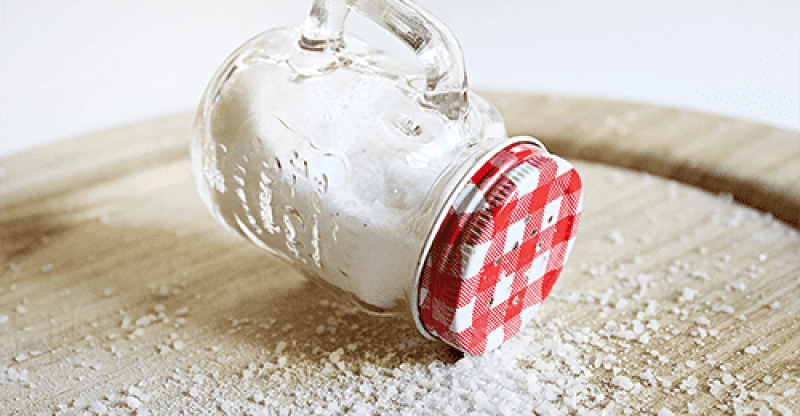
Take a moment to appreciate the power of anti-caking agents. Take a moment to appreciate the power of anti-caking agents.
Is the anti caking agent an issue and do you all care about it.
Is anti caking agent in salt bad for you. Silicon dioxide is a natural chemical mix of silicon and oxygen that has uses in many food products as an anticaking agent. Silicon dioxide is generally safe as a food additive though some agencies are calling for stricter guidelines about the quality and characteristics of the silicon dioxide found in foods. Even if a distributor wanted to waste enormous amounts of cash putting unnecessary amounts of anti-caking agent in salt regulations dont allow it.
The FDA and most other international food agencies limit the amount of anti-caking agent to 2 by weight except in baking powder. The most common anti-caking agent is salt. When you pour out salt from a box you expect it to flow freely often thanks to sodium aluminosilicate.
Could you imagine having to pick apart salt from a block every time you needed salt to cook or wanted to add flavor to a bag of popcorn. Is anti-caking agent bad for you. Most importantly are they safe.
The bottom-line is that the US. Food and Drug Administration FDA confirms the safe use of the anti-caking agents used in food and beverages. What is anti-caking agent made from.
Most anticaking agents are made from synthetic substances such as silicon dioxide magnesium. Specifically Kerrygold salted butter is one of the best butters in the UK but the salt content of the butter is 999 Refined salt and 01 anti caking agent. Is the anti caking agent an issue and do you all care about it.
If so is there any specific anti caking agents that one should avoid. Yes commercial table salt contains anti-caking agents. No these do not prevent salt from dissolving in your body.
Anti-caking agents are added to prevent the salt crystals from sticking together due to air humidity. They achieve this by reacting with water before the salt can. Several anti-caking agents have been cause for concern recently because of their name.
Sodium and Potassium ferrocyanide are feared because the chemical compound contains cyanide a known toxin and common Hollywood poison of choice. However the same could be said about regular table salt. By the way sea salt I have both fine and coarse usually does not contain anti-caking additives.
The addition of a caking agent is FDA-regulated and I am not worried about the safety of the small amount of table salt I. The next time you add salt to your French fries from a salt shaker scoop up a cup of flour to add to your cookie dough. Take a moment to appreciate the power of anti-caking agents.
Other additives are unlikely to cause food intolerance reactions. This includes anti-caking agents bleaches emulsifiers mineral salts propellants food acids sweeteners but see factsheet thickening agents vegetable gums and vitamins. Anti-caking agents to stop the.
Leading nutrition experts disagree on whether magnesium stearate is safe or not. Natural mineral salts that are used in nutritional supplements including calcium magnesium potassium iron selenium and zinc are found in rocks and soil. Anti-caking agents are added to table salt to keep it from clumping and most contain iodine.
Dont use table salt in your ferments. The chemicals and use of iodine can inhibit the fermentation process and lead to salty tasting fermented vegetables or sauerkraut. Table salt onion powder garlic powder fruit powder and soup powder may contain anti caking agents but in quantities not exceeding 20 per cent either singly or in combination.
Silicates of calcium magnesium aluminum or sodium or silicon dioxide. Myristates palmitates or stearates of aluminum ammonium calcium potassium or sodium. Magnesium carbonate was also used as an early anti-caking agent but I havent found any brands that still use it.
I dont have any reason to believe those anticaking agents are harmful but theyre easy enough to avoid with canning salt. Anti caking agent is a man made product. Its not the worst preservative you can consume.
Regardless its still not suppose to be in your body like any other preservative. Prussiate of soda yellow An anticaking agent in salt. Contains a minimum of 99 percent by weight of sodium ferrocyanide decahydrate.
Toxic to blood lungs mucous membranes. Repeated or prolonged exposure to the substance can produce target organs damage.
